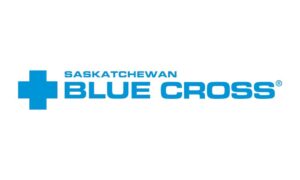How long do life insurance claims take to process?
How long do life insurance claims take to process?
within 60 days The good news is that most life insurance claims get approved. You’ll typically get the payout within 60 days of the approval. And if your claim was straightforward and easy to review, the life insurance payout could be distributed in as little as 10 days.
How do you follow up on a claim?
Follow up on all claims should begin as soon as 7 to 10 days after your claim has been submitted to the insurance company. … Ask the customer service representatives (CSR) information once the call is complete: Name. Extension number (some companies use an employee id number), Call reference number.
What is claim status?
A claim status transaction is used for: • An inquiry from a provider to a health plan about the status of a health. care claim. • A response from the health plan to a provider about the. status of a claim.
How do I claim national insurance?
To request a claim, it is required to convey to the customer care team of National General Insurance about the accident of the insured’s car by dialing the toll-free number 1800 200 7710. The company will register your claim and will provide you with a claim registration number.
Is Farmers owned by Zurich?
In 1998, Farmers Group, Inc. was acquired by Zurich Financial Services.
Did MetLife sell out to Farmers Insurance?
MetLife, Inc. (NYSE: MET) today announced the completion of its sale of Metropolitan Property and Casualty Insurance Company and certain wholly-owned subsidiaries to Farmers Group, Inc., a subsidiary of Zurich Insurance Group, for a purchase price of $3.94 billion in cash. Apr 7, 2021
How do you spell aggressive insurance?
Based in Irving, Texas, Aggressive insurance started as a car insurance company and has since expanded to Georgia.
What car insurance does USPS use?
TruStage™ Auto and Home Insurance program is offered by TruStage Insurance Agency, LLC and issued by leading insurance companies. Discounts are not available in all states and discounts vary by state.
What does high risk mean in insurance?
What Is High-Risk Auto Insurance? Okay, high-risk auto insurance (also known in the industry as nonstandard auto insurance) is the coverage you have to buy when an insurance company decides you’re more at risk of getting into an accident and filing a claim than the average driver. Sep 27, 2021
Why is my insurance suddenly so high?
Common causes of overly expensive insurance rates include your age, driving record, credit history, coverage options, what car you drive and where you live. Anything that insurers can link to an increased likelihood that you will be in an accident and file a claim will result in higher car insurance premiums. Jan 25, 2022
What do u mean by insurance?
Insurance is a contract, represented by a policy, in which an individual or entity receives financial protection or reimbursement against losses from an insurance company. The company pools clients’ risks to make payments more affordable for the insured.
Is USPS self-insured?
The United States Postal Service is self-insured and does not carry insurance on its motor vehicles because it is exempt from the requirements of state vehicle insurance statutes.
Does USPS have insurance on their vehicles?
Does USPS have auto insurance? The USPS is a federal entity and is exempt from the vehicle insurance laws of every state. As such, the United States Postal Service is self-insured and does not carry private insurance on any of its vehicles. Jun 18, 2021
Do postal employees get car insurance discounts?
A Concise Overview: Auto insurance is determined by postal code and occupation. Postal workers can receive federal employee car insurance discounts. Post office vehicle accidents are covered by government car insurance. Jan 26, 2022
Who are the highest risk drivers?
Some of the most common higher-risk categories include: Young drivers under the age of 25. Drivers with a history of speeding tickets. Drivers with one or more auto accidents. Drivers with a DUI. Drivers with low credit scores.



